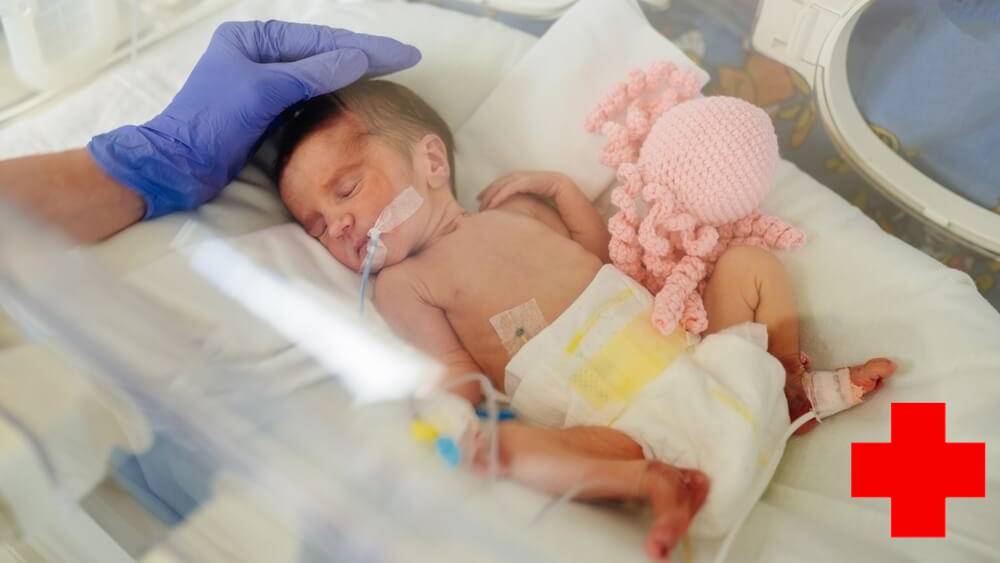Hello there, welcome to another exhilarating read about Acute Care Nurse Practitioners!
In this article, we’ll go over what an Acute Care NP is, ACNP Nurse duties, some Acute Care NP associations, why you should become one, the nursing career and job prospects, and some common ACNP Nurse frequently-asked questions.
At the end of the reading, we promise that you will walk away with a fuller knowledge of every aspect of the life and career of an ACNP Nurse.
Expect the following by reading this guide:
- What is an Acute Care Nurse Practitioner?
- Job descriptions of ACNP Nurses
- The career outlook for an AGACNP
- AGACNP requirements
Let’s get started right away!
What is Acute Care Nurse Practitioner?

ACNPs are APRNs (Advanced Practice Registered Nurses) who care for patients in hospital or acute care settings.
This is not the same as a Primary Care Nurse Practitioner.
ACNPs see patients when they are hospitalized, ill, or recovering from surgical procedures and trauma.
Their sole focus is on caring for adults with complex diseases (middle-aged, young, and older adults).
ACNPs (Acute Care Nurse Practitioners) – also recognized as AGACNPs (Adult-Gerontology Acute Care Nurse Practitioners) – provide comprehensive patient care ranging from disease prevention to acute care management.
Frequently, these Practitioners continue to monitor patients as they transition from the hospital to the outpatient setting.
Many Nurses aspire to be Nurse Practitioners in the long run, but what type of Nurse Practitioner to become is a personal choice for each Nurse.
To become an ACNP, you must complete an accredited master’s degree in nursing, doctorate in nursing, or Post-Graduate Acute Care Nurse Practitioner Program.
We’ll explain what an ACPN does and how to become one in this guide, and hopefully, help you decide if this is the right nursing career path for you.
Acute Care Nurse Practitioner Job Description (ACNP Responsibilities)

ACNPs care for patients in a variety of settings, from disease prevention to acute care management.
Frequently, Nurse Practitioners will continue to monitor patients as they transition from the hospital to the outpatient setting.
Acute Care NPs’ specific responsibilities include the following:
- Arrange for and interpret laboratory tests and results
- Create treatment strategies
- Collaborate with Physicians and other health care experts
- From admission to discharge, provide direct patient management
- Stabilize patients in Intensive Care Units
- Medical condition diagnosis
- Assist the medical team with procedures performed at the bedside
- Establish follow-up care
- Monitoring and tracking the progress of hospitalized patients
- Establishing patient objectives to guide patients toward the discharge
- Collaborating with Physicians to ensure the needs of patients are met
- Collaborating with discharge planners to ensure appropriate placement and follow-up arrangements are made the following discharge
- Medication prescriptions
- Educate patients and their families
- Intubation and defibrillation
- Puncture of the lumbar spine
- Injuries caused by casts and splints
- Conscious sedation administration
- Debridement of wounds
- Making an incision and draining it
- Central venous catheters should be placed.
- Incorporate chest tubes
Along with performing basic nursing duties, Acute Care Nurse Practitioners are responsible for performing physical examinations and collecting patient histories, diagnosing and treating people with acute conditions, ordering lab tests, prescribing medications and other therapies, performing bedside procedures, stabilizing critical-care patients, and collaborating with patients’ health care teams to manage patient care.

ACNPs may be required to work nights or weekends, depending on their employer and the needs of their patients.
Where Can Acute Care Nurse Practitioners Work?

Acute Care Nurse Practitioners are typically employed in inpatient hospital settings, where they provide care to patients who are suffering from a medical emergency.
Hospital emergency rooms, trauma units, Intensive Care Units (ICUs), and specialty clinics are examples of other work environments.
ACNP Career Options

Acute Care Nurse Practitioners can specialize in a variety of areas, including adult gerontology, pediatrics, and emergency care.
PNP-AC (Pediatric Acute Care Nurse Practitioner)
PNP-ACs provide care for children who are critically, chronically, or acutely ill, ranging in age from newborns to age 21.
They may work in community clinics, pediatric emergency departments, pediatric Intensive Care Units, or other specialized inpatient settings.
AG-ACNP (Adult-Gerontology Acute Care Nurse Practitioner)
Adult and older people with acute injuries, life-threatening illnesses, or exacerbated chronic conditions are cared for by AG-ACNPs.
They typically work in emergency departments and hospital inpatient units.
ENP (Emergency Nurse Practitioner)
ENPs are Registered Nurses with the advanced practice who specialize in emergency care.
They are typically employed in emergency rooms and other urgent-care settings.
Adult-Gerontology Acute Care Nurse Practitioners’ Requirements

Acute Care Nurse Practitioner Education
To qualify as an ACNP, you must first earn a Bachelor of Science in Nursing (BSN) in an accredited nursing school or college of nursing with accreditation.
If you currently hold only an ADN (Associate’s Degree in Nursing), you must go on to earn a bachelor’s degree.
This is a prerequisite for beginning any graduate nursing program.
If you are currently employed as an RN with an ADN, there are two programs that can assist you in reaching your goals.
They are bridge programs for RNs to BSNs and an online BSN Program.
Each program has unique eligibility requirements, and it is important to determine which programs you are suited for prior to applying.
There are three types of Acute Care Nurse Practitioner Programs available to Nurses with a BSN, both online and in-person:
MSN-NP
One of the most popular options for NP Programs, the MSN-NP is designed for students who already have a BSN and wish to enroll directly in a graduate-level program.
The applicant must hold a BSN degree.
DNP
Doctor of Nursing Practice Programs enables students to earn their doctorates while also fulfilling the requirements for licensure as a Nurse Practitioner.
The DNP is typically more appropriate for nurses who wish to work in a research-based or academic setting.
The applicant must hold a BSN degree.
Postgraduate Certificate
If you already hold a graduate degree in a field other than the one in which you wish to specialize with your NP, you can look for a school that offers a post-graduate certification option that will allow you to enroll directly in the program.
Basic requirements: To enroll in post-graduate certificate programs, you must hold a Master of Science in Nursing (MSN Program) or a Nurse Practitioner Certification in another specialty.

Typical coursework in an Acute Care NP Program includes the following:
- Role of the Advanced Practice Nurse
- Advanced Pathophysiology
- Health Promotion
- Advanced Physical Assessment
- Advanced Health Assessment
- Advanced Pharmacology
- Clinical Practicums
- Child and Family Development
- Advanced Practice Nurse
- Diagnostic Reasoning and Clinical Decision-Making for Acute Care
- Health Informatics
- Evidence-Based Practice
- Leadership and Critical Decision Making
Acute Care NP Skills
To become a successful Acute Care Nurse Practitioner, you’ll need a diverse set of competencies to ensure that patients receive appropriate, well-organized, and safe patient care.
Acute Care Nurse Practitioner skills typically include the ability to interpret lab work, diagnostic tests, and vital signs to determine a treatment plan.
You must be well-versed in EKG interpretation, ventilation settings, IV drip medication management, and other medications.
You may also be required to demonstrate a critical skill set in caring for patients on ECMO (Extracorporeal Membrane Oxygenation), depending on the environment.
As an Acute Care Nurse Practitioner, you are frequently caring for patients who are in their most vulnerable state, causing anxiety, stress, concern, worry, and a variety of other emotions in their loved ones.
You must have strong interprofessional and interpersonal skills to be successful.
These skills include the following:
Communication skills
Communication skills are essential in healthcare delivery, particularly acute care.
This is vital because it will reduce the number of errors and mistakes that may occur.
To ensure that everything is done and the best possible care is delivered, communication is required between all disciplines providing care to the patient.
Leadership Skills
You must be a leader to work as an Adult-Gerontology Acute Care NP.
In high-intensity and stressful situations, the Acute Care NP is frequently called upon to provide guidance.
As a result, leadership is required to gain the confidence, trust, and support of the healthcare team as well as the patient’s family and loved ones.
You must be able to think quickly and work well under duress.
Teamwork
Leadership and communication skills go hand in hand with teamwork.
A single person cannot provide the patient with appropriate, efficient, and beneficial care.
As a result, ensuring that all aspects of a patient’s health are met necessitates a team of Health Care Providers.
This is when the NP must take the initiative, assume leadership, and ensure that all disciplines collaborate to provide the best possible care to the patient.
Finally, the Adult-Gerontology Acute Care Nurse Practitioners must be constantly seeking to expand their professional development and knowledge.
Completing CEUs and voluntarily seeking conferences, webinars, publications, and online learning opportunities to expand their knowledge and stay current with evidence-based medicine are ways to do this.
Acute Care Nurse Practitioner Scope of Practice

ACNPs practice in any setting that may contain patients suffering from chronic, acute, and complex chronic injuries or illnesses.
Critical and acute care settings, emergency care for trauma stabilization, and procedural interventions or interventional settings are all examples.
Additionally, the continuum of acute care services includes ambulatory care, home care, urgent care, rehabilitative care, long-term acute care, hospice, and palliative care.

The practice environment also encompasses the mobile environment, which includes advanced ground and air ambulances, as well as virtual locations such as telehealth areas and teleintensive care units.
These standards are an invaluable resource for Acute Care Pediatric Nurse Practitioners (CPNP-AC), older adult ACNPs (ACNP-BC or ACNPC-AG), and those developing advanced nursing practice educational programs, ACNP credentials, and job descriptions, among other uses.
ACNPs have the same rights as all other NPs in the United States.
Specializing does not exempt them from any of the profession’s laws.
Due to the nature of their work, Acute Care NPs frequently practice independently with full practice authority.
Nurse Practitioners have “full practice authority” in more than 24 states, which means they are not required to work under the supervision of a physician.
Maine, Oregon, Alaska, Washington, Hawaii, and Iowa are all full practice states.
Recently, New York granted complete practice authority to NPs as well.
Importance of an Acute Care NP
Acute Care Nurse Practitioners provide essential critical and urgent care to their patients, which significantly impacts their quality of life.
A large number of critically injured or ill patients require specialized care, which ACNPs are specifically trained to deliver.
ACNPs also collaborate with Nurses, Physicians, and other members of the ancillary medical staff to provide patients with ongoing and immediate assistance.
Acute Care Nurse Practitioner Job and Career Outlook

NP jobs are expected to grow 47-53 percent between 2019 and 2029, according to the US Bureau of Labor Statistics.
Underserved areas, such as rural and inner-city communities, are expected to have particularly high demand.
This is more than three times the national average of 10-12 percent expected growth for all occupations over the same time period.
Prescriptive privileges are granted to NPs in all states.
As a result, NPs are highly valued across the healthcare spectrum and are in high demand in a variety of settings.
How Long Does it Take to Become an Acute Care NP?
ACNP degree programs typically take twenty-four to thirty-six months to complete, depending on the specifics of the program and whether they are offered part-time or full-time.
It is possible for nursing students to complete their program in as little as twenty-four years if they adhere to the full-time progression plan and are able to secure clinical experience placements or acquire clinical practice as soon as possible.
Scholars typically complete the program in thirty-six months, owing to the fact that the majority will be required to work during the program.
However, nursing students have a total of sixty months (5 years) to complete the APRN Program in its entirety.
Students are allowed to work during the didactic courses, but it is challenging and generally not recommended for students to work during the clinical hours of the program, which takes place mostly during the summer.
Professional Resources for ACNP Nurses

AACN (American Association of Critical-Care Nurses)
The AACN (American Association of Critical-Care Nurses), founded in 1969 and headquartered in Aliso Viejo, California, is the world’s biggest forte or specialty nursing organization.

The AACN represents the interests of more than 499,999 Critical and Acute Care Nurses in the United States through its more than 199 chapters.
The organization’s vision is to create a healthcare system that is navigated by the patients’ needs and their family members and that maximizes the contribution of Critical and Acute Care Nurses.
American Academy of Nurse Practitioners Certification Board
This non-profit certifying body offers several Nurse Practitioner Certification Examinations.
American Academy of Emergency Nurse Practitioners
This organization develops emergency healthcare guidelines, promotes continuing education for Emergency Nurse Practitioners, and funds emergency care training, education, and research.
American Nurses Association
This organization, one of the largest in the field of nursing, is responsible for the American Nurses Credentialing Center (ANCC), which administers board certification exams in a variety of nursing specialties.
American Association of Nurse Practitioners
This membership’s purpose is to promote NP education, professional development, and advocacy.
Gerontological Advanced Practice Nurses Association
This professional organization is comprised of Advanced Practice Nurses who provide care to senior citizens.
Emergency Nurses Association
This professional nursing organization is committed to advancing emergency nursing excellence.
Society of Trauma Nurses
This professional non-profit organization is dedicated to providing trauma patients with the best possible care.
Conclusion

Because of the enormous amount of responsibility ACNP Nurses bear when caring for patients in life-threatening situations, they have occupations that are both high-risk and high-reward in terms of financial compensation.
For patients receiving acute care, the ultimate goal is the restoration of their health and well-being.
Additionally, becoming an ACNP may provide Nurses with the opportunity to work in a high-growth field, advance their clinical leadership skills, become more integrated into interdisciplinary health care teams, and increase their earning potential in addition to providing them with the opportunity to provide patient care.
FAQs

Can Acute Care NP intubate?
ACNPs are trained to perform a wide range of life-saving medical procedures. While some states restrict Registered Nurses (RNs) from intubating patients, ACNPs who have received training can do so to save a patient’s life.
Can Acute Care NP Work in Primary Care?
Patients who are becoming more chronically ill are living longer and require more complex care. Care coordination, especially between settings, can make a big difference in how things turn out. Nurse Practitioners are trained to work in either acute or primary care settings.
Can an FNP Get an Acute Care Certification?
Enroll in a postgraduate nursing degree, or earn a post-master certificate designed for Nurses who have already earned a Master of Science in Nursing (MSN) to prepare for the transition from FNP to Acute Care NP. After which a Family Nurse Practitioner can acquire an Acute Care Certification.
What is a Critical Care Nurse Practitioner?
A Critical Care Nurse Practitioner plays an important role in the critical care team. They work in Intensive Care Units and provide care to patients in the acute care setting. They must act quickly, work efficiently, and enjoy working under duress.
What is an ICU Nurse Practitioner?
ICU Nurse Practitioner also recognized as Critical Care Nurse Practitioner plays an important role in the critical care team. They work in Intensive Care Units and provide care to patients in the acute care setting (ICUs). They must act quickly, work efficiently, and enjoy working under duress.
What Does an Acute Care Nurse Practitioner Do?
Acute Care Nurse Practitioners are APRNs (Advanced Practice Registered Nurses) who specialize in treating patients with new chronic conditions or acutely ill patients. ACNPs work in a variety of settings, including urgent-care clinics, operating rooms, and hospital emergency rooms, and may specialize in either children or adults.
What is Urgent Care Training for Nurse Practitioners?
Because Urgent Care Nurse Practitioners are frequently the first medical professionals to see patients who are seriously injured or ill, they must earn a postgraduate nursing degree specializing in emergency medicine apart from a BSN—almost always a Master’s of Science in Nursing (MSN).









